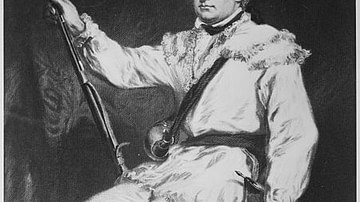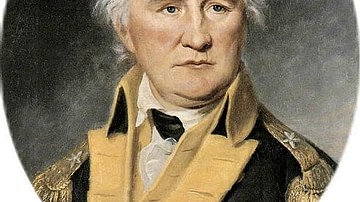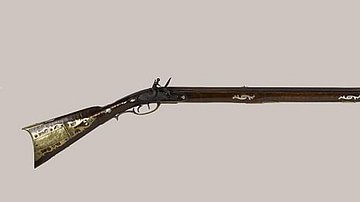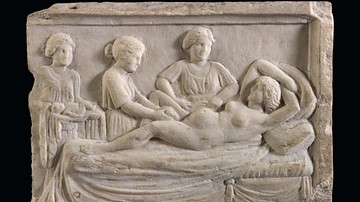Search Images
Browse Content (p. 266)

Image
B-17 Bombers over Schweinfurt
A group of U.S. B-17 Flying Fortress bombers over Schweinfurt, Germany. The target, hit in August 1943, was several ball-bearing factories crucial to the German war effort.

Image
B-17 Bomber in Flight
A Boeing B-17 Flying Fortress in flight at the Chino Airshow in California, 2014. The B-17 was the main US bomber in WWII in the European theatre of the conflict and saw service in the Middle East and Pacific amongst other places.

Image
Boeing B-17 Flying Fortress
A Boeing B-17 Flying Fortress in flight at the Chino Airshow in California, 2014. The B-17 was the main US bomber in WWII in the European theatre of the conflict.

Image
Battle of Cowpens
A scene from the Battle of Cowpens (17 January 1781), in which the life of American Colonel William Washington (center, atop the white horse) is saved by an unnamed Black soldier (left, firing pistol). Painting by William Ranney, 1845.

Image
Banastre Tarleton
Portrait of Sir Banastre Tarleton, one of the most infamous British officers during the American Revolutionary War (1775-1783), oil on canvas by Sir Joshua Reynolds, 1782.
National Gallery, London.

Image
Daniel Morgan
Portrait of Daniel Morgan by an unknown artist, from the George Washington Bicentennial Commission c. 1924.
US National Archives and Records Administration.

Image
Portrait of Daniel Morgan
Portrait of Daniel Morgan (1735/36-1802), oil on canvas by Charles Willson Peale, c. 1794.
Independence National Historical Park Collection, Philadelphia PA.

Image
Kentucky Rifle
Long Rifle, also known as a Kentucky Rifle or Pennsylvania Rifle, first used during the American Revolutionary War (1775-1783) but prominent during the War of 1812 and the American Civil War. By John Spitzer, c. 1810. Walters Art Museum...

Image
Roman Feeding Bottle in the Shape of a Swan
Roman earthenware bottle in the shape of a swan, used to feed milk or water to babies and infants, 199 BCE to 500 CE.
Sir Henry Wellcome's Museum Collection, Science Museum Group Collection, London.

Image
Roman Marble Plaque Showing a Birth Scene
Marble plaque depicting a 'parturition', or birthing scene, excavated in Ostia, Italy, c. 400 BCE to 300 CE. Such scenes eased the fears of expectant mothers by depicting positive birthing images. During this time, midwives were female...